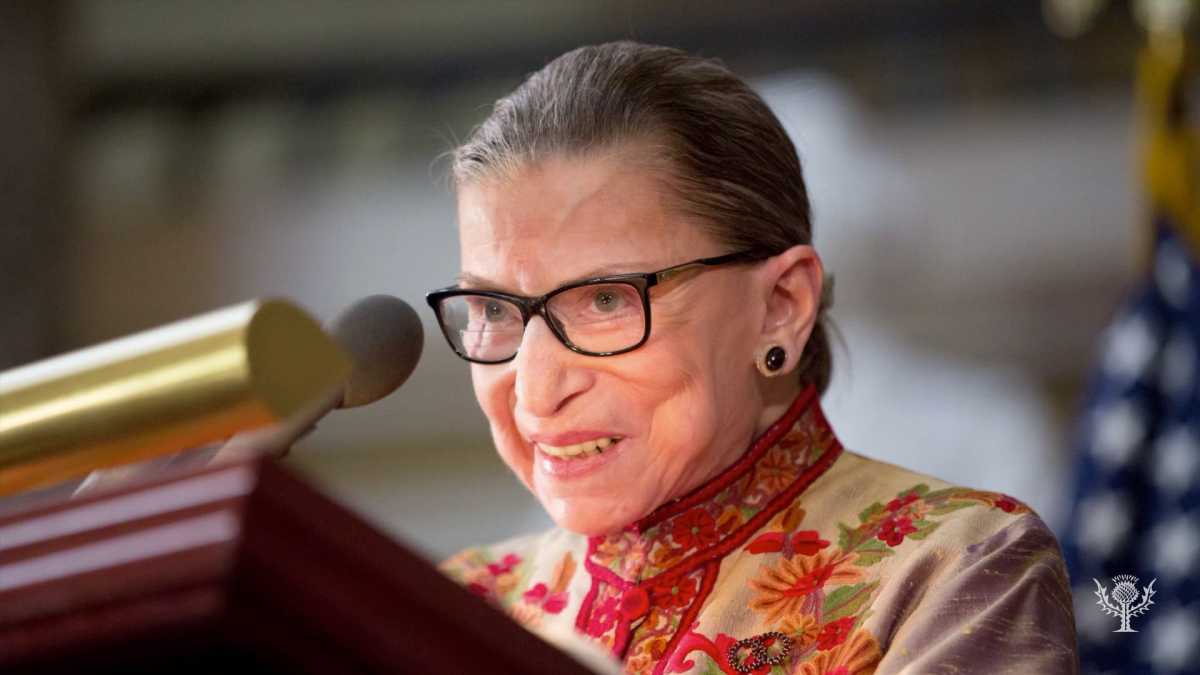People
The Life and Legacy of Ruth Bader Ginsburg

Table of Contents:
- 1. Introduction
- 2. Early Years and Education
- 3. Legal Career and Advocacy
- 4. Supreme Court Appointment
- 5. Legacy
- 6. Key Takeaway
- 7. Frequently Asked Questions
1. Introduction
Ruth Bader Ginsburg, also known as RBG, was a prominent figure in American law and politics. As an associate justice of the Supreme Court of the United States, she had a profound impact on the judicial system, championing gender equality and civil liberties. This article delves into her background, achievements, and lasting influence.
2. Early Years and Education
Ruth Bader Ginsburg, born on March 15, 1933, in Brooklyn, New York, grew up in a middle-class Jewish family. She excelled academically from an early age and attended James Madison High School. Ginsburg faced discrimination as a Jewish student, which fueled her commitment to fighting injustice.
After graduating high school, Ginsburg pursued her undergraduate studies at Cornell University. Despite facing gender-based challenges, she graduated at the top of her class. Ginsburg then married Martin D. Ginsburg and became a mother before continuing her education at Harvard Law School, where she was one of the few women in her class.
At Harvard, Ginsburg experienced both academic and personal setbacks but demonstrated unwavering determination. After transferring to Columbia Law School, she graduated as tied-for-first in her class in 1959.
3. Legal Career and Advocacy
Following her graduation, Ruth Bader Ginsburg faced substantial difficulty in securing employment due to her gender. Despite this, she began her legal career as a law clerk and then became an advocate for women’s rights. Ginsburg co-founded the Women’s Rights Project at the American Civil Liberties Union (ACLU) and served as its general counsel from 1973 to 1980.
During this period, Ginsburg strategically selected cases that challenged gender-based discrimination, arguing numerous landmark cases before the Supreme Court. Her legal brilliance and strategic approach successfully advanced the cause of gender equality, reshaping laws and regulations affecting women’s rights in the United States.
4. Supreme Court Appointment
In 1980, President Jimmy Carter appointed Ruth Bader Ginsburg to the United States Court of Appeals for the District of Columbia Circuit, where she served for thirteen years. Her exceptional performance and moderate approach to decision-making caught the attention of President Bill Clinton, who nominated her to the Supreme Court in 1993.
Following her nomination, Ginsburg faced a rigorous confirmation process but was ultimately confirmed by the Senate with a strong majority. As a Supreme Court justice, she fervently advocated for women’s rights, consistently supporting decisions that advanced gender equality in areas such as employment, education, and healthcare.
5. Legacy
The legacy of Ruth Bader Ginsburg is marked by her unwavering commitment to equality, justice, and the Constitution. Her meticulous legal work laid the foundation for significant advancements in gender equality and civil rights. Ginsburg’s notable majority opinions, powerful dissents, and tireless efforts to bridge divides within the Court solidified her reputation as a respected and influential justice.
RBG’s impact extended beyond her work on the bench. She became a pop culture icon, captivating younger generations with her wisdom, determination, and progressive approach to the law. Ginsburg’s emphasis on intersectionality and her ability to form alliances with colleagues across the ideological spectrum further enhanced her reputation as an influential and transformative justice.
6. Key Takeaway
Ruth Bader Ginsburg’s contributions to American law and society cannot be overstated. Her tireless efforts as a pioneering advocate for gender equality and her subsequent tenure on the Supreme Court advanced the rights of women and marginalized communities. By upholding principles of justice and equality, she left an indelible mark on the legal landscape and inspired countless individuals to engage in the pursuit of a more just society.
7. Frequently Asked Questions
Q: What were some of Ruth Bader Ginsburg’s significant Supreme Court cases?
A: Ruth Bader Ginsburg authored several landmark opinions during her time on the Supreme Court. Some notable cases include United States v. Virginia (1996), which struck down the Virginia Military Institute’s male-only admissions policy, and Ledbetter v. Goodyear (2007), which addressed gender-based pay discrimination.
Q: How did Ruth Bader Ginsburg gain popularity beyond legal circles?
A: Ginsburg gained popularity beyond legal circles through her strong and eloquent dissenting opinions, which resonated with the public. She also became a cultural icon, particularly among younger generations, due to her inspiring personal story, known as the “Notorious RBG,” and her unwavering dedication to equality and justice.
Q: How did Ruth Bader Ginsburg’s legal philosophy influence the court?
A: Ruth Bader Ginsburg’s legal philosophy emphasized the importance of equality and fairness under the law. Her progressive approach to interpreting the Constitution sought to protect individual rights and preserve societal progress. Ginsburg’s commitment to consensus-building and finding common ground among her colleagues forged a pragmatic path forward on important legal issues.
Q: What is Ruth Bader Ginsburg’s lasting impact on gender equality?
A: Ruth Bader Ginsburg’s lasting impact on gender equality is profound. Through her legal advocacy and decisions, she played an instrumental role in dismantling gender-based discrimination in areas such as employment, education, and reproductive rights. Her dedication to ensuring equal rights and opportunities for all remains a guiding light in the ongoing fight for gender equality.












